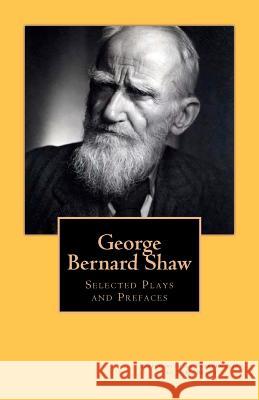George Bernard Shaw: Selected Plays and Prefaces » książka
George Bernard Shaw: Selected Plays and Prefaces
ISBN-13: 9781479194476 / Angielski / Miękka / 2012 / 386 str.
If one were to describe George Bernard Shaw's position in the history of Western thought he might be called the witty, didactic English disciple of Nietzsche as well as a devoted socialist and playwright. Shaw was very much affected by the philosophy of Nietzsche and Marx, and Romantic poets like Blake, Shelley, Whitman and Thoreau. In a sense, G. B. Shaw was a disseminator and destroyer of the Romantic tradition in the Modern era. Shaw could be called the last English Romantic poet even though most critics would be more inclined to characterize him as a "playwright," "essayist," or "political pamphleteer." But poets have often, over the ages, blurred the critical distinctions of genre and form, using and combining different mediums in which to showcase their art. Shaw, like Nietzsche, preferred the title of "creative artist" (with a scientific twist) over the prosaic and worn term of "poet: " "Like Shakespeare," Shaw wrote, "I was a born dramatist, which means a born artist-biologist." In essence Shaw saw himself a "dramatic poet," for not only was he a poet in the sense of being a visionary, but as R. J. Kaufmann wrote, he "invented an art," a dramatic style that was all his own. The book includes some of shaw's most poetic, political, philosophical, and religious plays: Candida; Selections from Man and Superman; John Bull's Other Island; Selections from Back to Methuselah; and St. Joan
Zawartość książki może nie spełniać oczekiwań – reklamacje nie obejmują treści, która mogła nie być redakcyjnie ani merytorycznie opracowana.











